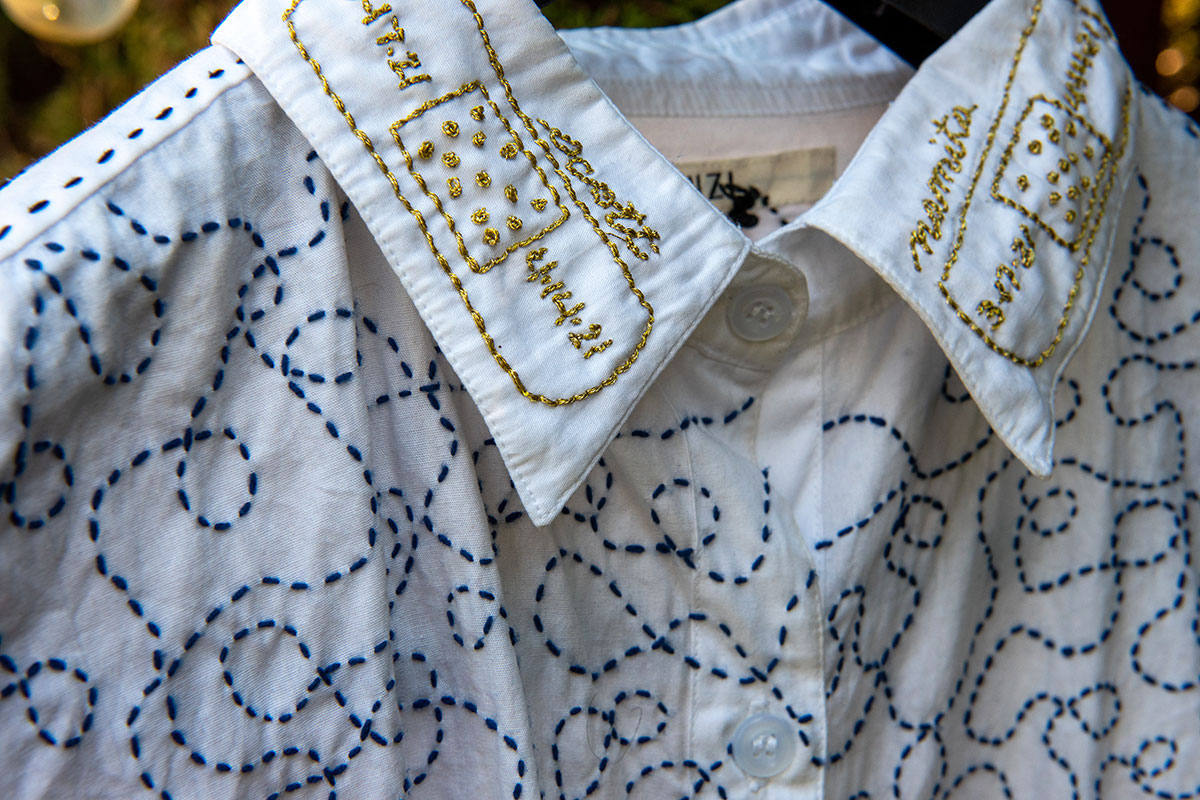In April 2020, the Center for Craft, based in Asheville, North Carolina, established the Craft Futures Fund (CFF) to support craft communities around the United States and their creative responses to the coronavirus pandemic. This grant sought to recognize and invest in projects that cultivate strength and sustainability within the field of craft. As a group, the CFF recipients’ projects represented diverse and multidisciplinary efforts to envision and build new, resilient futures. Through this initiative, from May to October 2020, the Center for Craft awarded over thirty craft-based education projects that now serve communities impacted by COVID-19.
In the summer of 2021, Folklife Magazine reached out to the Center for Craft to create a miniseries highlighting CFF recipients and projects as part of its Chronicling Culture in Crisis series. In Part One of two, we captured a conversation between CFF recipients Namita Gupta Wiggers and Lisa Woolfork.
Namita Gupta Wiggers is an artist, curator, educator, and writer based in Portland, Oregon. She is the founding director of the MA in Critical Craft Studies at Warren Wilson College, a low residency program focused on craft theory and history, and the director and co-founder of the Critical Craft Forum.
Lisa Woolfork is an associate professor of English at the University of Virginia, where she specializes in African American literature and culture, and is a fourth-generation sewing enthusiast. She harnessed this knowledge alongside her academic and activist training to create Black Women Stitch, “the sewing group where Black Lives Matter.” Lisa is the host and producer of the Stitch Please podcast, a weekly audio show centering Black women, girls, and femmes in sewing.
Watch the video below (with open captions provided) to learn about these two leading figures’ CFF projects, how craft shapes their identities, and what lessons they’ve learned from thinking and making during the pandemic. Follow along as they delve into topics like the precarity of digital archives and social media, the legacy and prevalence of anti-Black and anti-Asian racism in America, and the importance of self-care.
Resources Discussed in This Recording
- Rogue Archives by Abigail De Kosnik
- Rolodex Exhibition at the Center for Craft
- AAPI Craft Directory
- Lisa Woolfork’s podcast, Stitch Please
- Namita Gupta Wiggers’ project, Critical Craft Forum
- The Nap Ministry
- Gather by Octavia Raheem
- Imitations by Zadie Smith
- Aram Han Sifeuntes “We Are Never Other”
Juliana Rowen Barton is the director of the Center for the Arts at Northeastern University and the associate curator for Designing Motherhood, a first-of-its-kind exploration of design and the arc of human reproduction. From 2020 to 2021, she was an ACLS Leading Edge Fellow at the Center for Craft. She comes from a family of architects and spends her free time in the pottery studio and the kitchen.
Emily Buhrow Rogers is an ACLS Leading Edge Fellow at the Center for Folklife and Cultural Heritage. She is also a recipient of the Center for Craft’s Craft Research Fund and its Craft Futures Fund.
The Center for Craft is celebrating twenty-five years of advancing the field of craft through awarding grants, offering exhibitions and public programs, building strategic community and national partnerships, and spearheading initiatives in the United States. Founded in 1996, the Center has become a vital community resource, serving thousands of visitors annually and administering more than $300,000 in grants to those working in the craft field.


